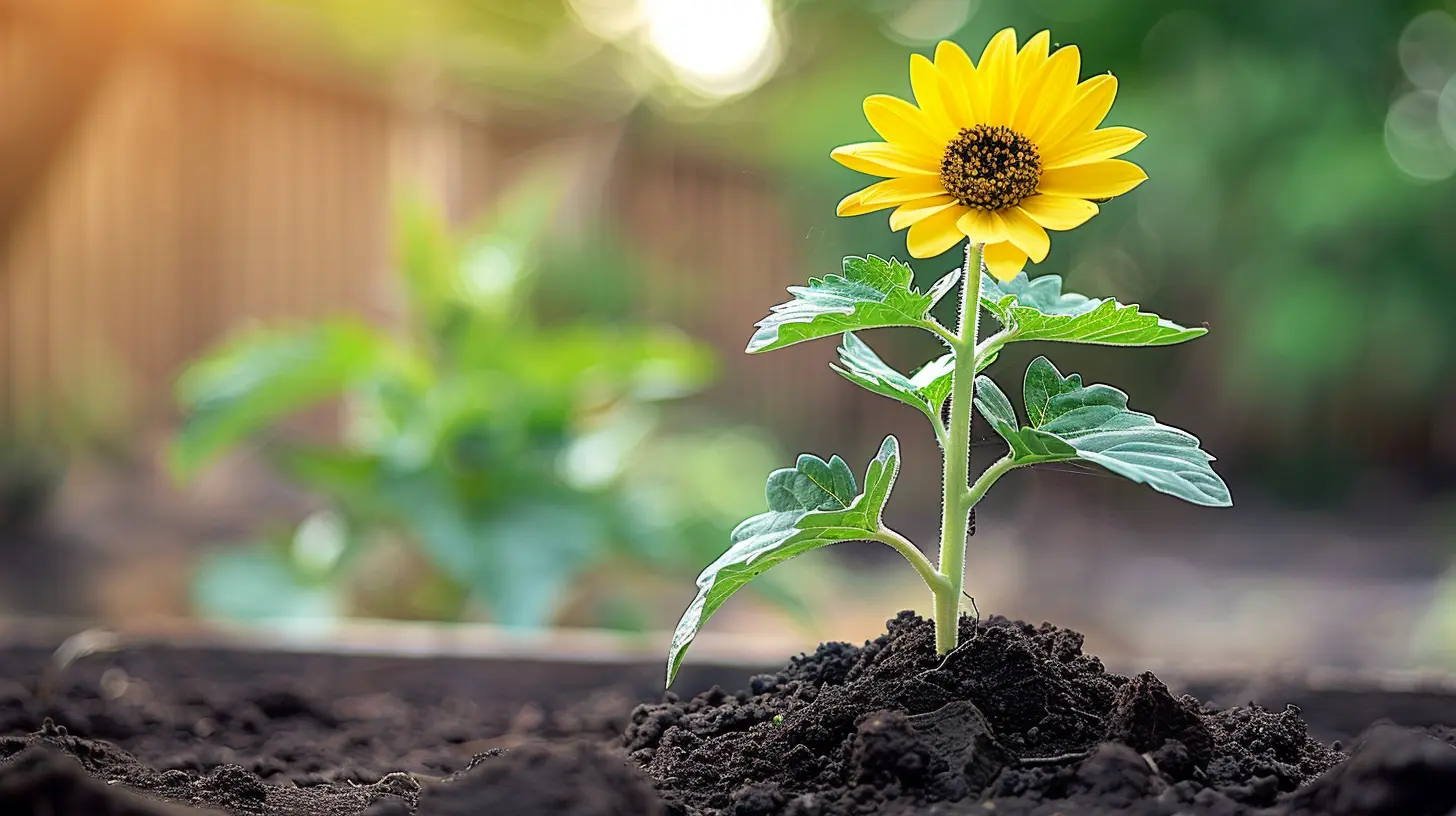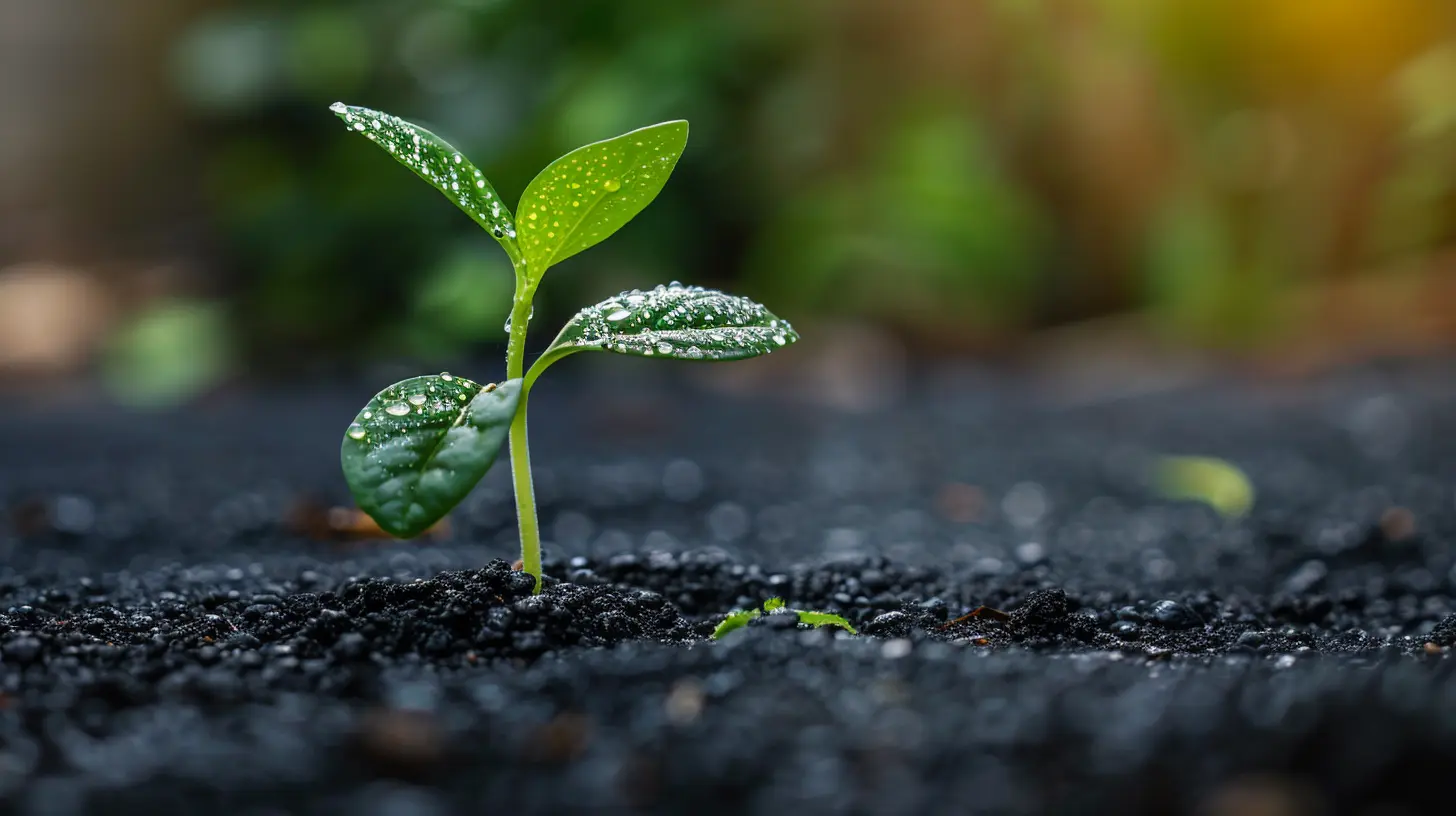Cultivating a Growth Mindset Through Self-Assessment
9 August 2025
Success is not always about talent, intelligence, or luck. It's often about mindset—the way you approach challenges, setbacks, and learning opportunities. One concept that's been gaining a lot of attention lately is the growth mindset. But how can we nurture such a mindset? One powerful tool is self-assessment. Yep, taking a good, hard look at yourself can pave the way to a stronger, more resilient mindset.
In this article, we’ll explore how self-assessment can help you cultivate a growth mindset. Whether you're a student, a professional, or someone looking to improve their personal life, this guide will provide you with actionable insights to foster continuous growth.

What is a Growth Mindset?
Before we dive into self-assessment, let’s break down what a growth mindset really is. Coined by psychologist Carol Dweck, a growth mindset is the belief that you can improve your abilities through hard work, learning, and persistence. In contrast, a fixed mindset is the belief that your intelligence, talents, or abilities are static and can’t be changed.Growth Mindset vs. Fixed Mindset: The Key Differences
People with a growth mindset:- See challenges as opportunities to learn.
- Embrace failure as a stepping stone to success.
- Believe effort leads to mastery.
- Are open to feedback and new ideas.
On the other hand, those with a fixed mindset:
- Avoid challenges for fear of failure.
- Believe that effort is pointless if you're not "naturally" good at something.
- Feel threatened by the success of others.
- View feedback as criticism rather than an opportunity to improve.
Now, here’s the exciting part—mindsets are not set in stone. You can train yourself to adopt a growth mindset, and one of the best ways to do this is through self-assessment.

Why Self-Assessment is Crucial for a Growth Mindset
Self-assessment is the process of reflecting on your own performance, behaviors, and thoughts. Sounds simple, but it’s incredibly powerful. Why? Because it forces you to confront your strengths and weaknesses head-on. When done correctly, self-assessment offers an opportunity for self-awareness and continuous improvement—the very foundations of a growth mindset.Self-Awareness: The First Step Toward Growth
You can't grow if you don’t know where you stand. When you engage in self-assessment, you're taking the first step toward understanding your current abilities and areas for improvement. This awareness is crucial for growth because it helps identify what you need to work on.Think of it as using a map. If you don’t know where you are, how can you plot a course to your destination?
Constructive Criticism: Embracing Feedback
Self-assessment also helps you become more comfortable with feedback, whether it's from others or from yourself. When you’re open to feedback, you're less likely to see it as an attack and more likely to view it as a learning opportunity. This is a key characteristic of a growth mindset.In contrast, a fixed mindset often leads to defensiveness when faced with criticism. People with a fixed mindset tend to see feedback as a personal attack rather than a chance to improve. Self-assessment can help break that pattern by encouraging you to view feedback in a more constructive light.
Accountability: You Own Your Growth
Another benefit of self-assessment is that it fosters accountability. It’s easy to blame external factors for your shortcomings (“I didn’t have enough time,” “The teacher was unclear,” etc.). But when you engage in regular self-assessment, you're forced to take responsibility for your growth. This accountability is empowering because it puts the control back into your hands.
How to Incorporate Self-Assessment into Your Daily Life
So, how do you actually start incorporating self-assessment into your routine? Don’t worry, it’s not as hard or time-consuming as you might think. Here are some practical steps to help you get started.1. Reflect on Your Day
Before you hit the pillow each night, take a few minutes to reflect on your day. Ask yourself simple questions like:- What did I do well today?
- Where did I struggle?
- How could I have handled certain situations better?
It doesn’t have to be a long, drawn-out process. Sometimes just 5-10 minutes of reflection can provide valuable insights into your strengths and areas for improvement.
2. Set SMART Goals
One of the most effective ways to foster a growth mindset through self-assessment is by setting SMART goals—goals that are Specific, Measurable, Achievable, Relevant, and Time-bound. After assessing your current strengths and weaknesses, create goals that will push you to improve in specific areas.For example, if you’re trying to become a better writer, don’t just say, “I want to write better.” Instead, set a SMART goal like, “I will write one blog post per week and seek feedback from two peers by the end of each week for the next two months.”
3. Use a Journal or App
Journaling can be an excellent tool for self-assessment. Writing things down helps clarify your thoughts and provides a record of your progress over time. You can use a regular notebook or even a self-assessment app to keep track of your reflections, goals, and feedback.Here are some questions you can use in your self-assessment journal:
- What did I learn today?
- How did I handle challenges or setbacks?
- In what areas do I need to improve?
- What’s one thing I can do tomorrow to improve?
4. Seek Feedback from Others
Sometimes, we’re too close to our own experiences to see the full picture. That’s why it’s essential to seek feedback from others. Ask your colleagues, teachers, or friends for constructive criticism. Be open to their insights, and use their feedback to inform your self-assessment.Remember, feedback isn’t about being perfect—it’s about getting better.
5. Assess Your Emotional Responses
Self-assessment isn’t just about your skills or performance; it’s also about your emotional responses. How do you react to failure? How do you handle stress? Are you more likely to give up when the going gets tough, or do you push through?By understanding your emotional triggers, you can start to develop strategies to handle them better. This is especially important for cultivating a growth mindset because it helps you stay resilient in the face of challenges.

The Role of Failure in Cultivating a Growth Mindset
Let’s talk about failure. No one likes to fail, right? But here’s the thing: failure is a natural part of growth. In fact, if you’re not failing, you’re probably not pushing yourself hard enough.Self-assessment can help you change the way you view failure. Instead of seeing it as the end of the road, you’ll start to see it as a detour—an opportunity to learn and improve. And let’s be real, all the greats have failed at some point. Michael Jordan, Steve Jobs, J.K. Rowling—they all faced massive setbacks before they found success.
Reframe Failure as a Learning Opportunity
When you fail, take a moment to reflect on what went wrong and how you can improve. This ties directly into your self-assessment process. Ask yourself:- What did I learn from this experience?
- What can I do differently next time?
- Is there a specific skill I need to improve?
By reframing failure as a learning opportunity, you’ll start to embrace it rather than fear it.
The Power of a Growth Mindset in Education and Beyond
Cultivating a growth mindset through self-assessment isn't just for students or professionals. It applies to every aspect of life—from relationships to personal hobbies. When you believe that you can improve, you become more open to trying new things, taking risks, and ultimately, living a more fulfilling life.In Education
For students, a growth mindset can be a game-changer. Instead of being discouraged by a bad grade, students with a growth mindset will see it as a chance to improve. Self-assessment can help students pinpoint where they went wrong and what they can do better next time.In the Workplace
In the professional world, those with a growth mindset are more likely to seek out challenges, ask for feedback, and continually improve their skills. Self-assessment can help professionals identify areas for growth and track their progress over time.In Personal Life
Even in your personal life, a growth mindset can improve your relationships, hobbies, and general well-being. By regularly assessing your behaviors and attitudes, you’ll become more aware of negative patterns and make proactive changes to improve your life.
Conclusion: Start Your Growth Journey Today
Cultivating a growth mindset is a lifelong journey, but it’s one that starts with self-awareness. Through self-assessment, you can gain valuable insights into your strengths and weaknesses, embrace failure as a learning opportunity, and take actionable steps toward continuous improvement.So, the next time you face a challenge or setback, take a step back and assess. How can you turn this into a growth opportunity? With the right mindset, the possibilities are endless.
all images in this post were generated using AI tools
Category:
Self AssessmentAuthor:

Anita Harmon
Discussion
rate this article
1 comments
Iris McCollum
This article effectively highlights the importance of self-assessment in developing a growth mindset for learners.
September 11, 2025 at 2:52 AM

Anita Harmon
Thank you for your insightful comment! I'm glad you found the article effective in conveying the vital role of self-assessment in fostering a growth mindset.


